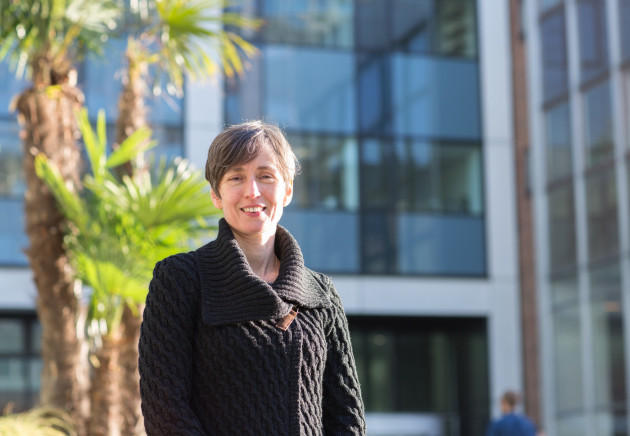Multi-mode programme will take the Imperial experience to yet another level

Professor Emma McCoy (PhD Maths 1994), Interim Vice-Provost (Education and Student Experience)
What do bird song, tea bags and a virtual trip to the Pyrenees have in common? They have all featured in Imperial’s online teaching – in many cases surpassing what we could do in person – as part of our new multi-mode digital education programme.
A degree is about stretching students beyond what they already know, and at Imperial this is always our focus. We are proud of our reputation as a university that nurtures curious minds – and we see no reason why that should change as we move into a new era of teaching.
The multi-mode programme does not mean that everything will be online; while government directives and safety allow, we are still offering a significant portion of teaching on campus. What it does mean, however, is that we have been able to move a lot of our more didactic material online, freeing up our time on campus so it can be used more effectively.
Our was already turning the idea of ‘the sage on the stage’ on its head, and multi-mode gives us the opportunity to focus more on ways to encourage problem-solving and thinking skills.
In our Dawn Chorus project, for example, students measured bird diversity from counts of unique songs they could hear from their locations around the world. In the Tea Bag Decomposition project, the students measured rates of microbial decomposition activity, based on the Tea Bag Index, by burying tea bags near their home. And 35 of our MSc Petroleum Geoscience students went on a simulated overseas trip to the Pyrenees, where they used photo panoramas to observe more detail than they could have done in person.
We know that students come to Imperial in part for our incredible facilities and amazing labs, and this hasn’t changed. In light of COVID-19, to ensure staff and student safety at all times, we have reconfigured our labs and our timetables with staggered starts and cohort-based teaching. This new way of working is not only safer but means that the contact time we have will be more valuable.
We’ve also provided alternatives to some lab-based work in the form of Lab-in-a-Box, which means students can run the experiments themselves at home and discuss the work with other students remotely. The Department of Surgery and Cancer has developed a simulation for interventional radiology students, using the Microsoft HoloLens 2 headset, helping trainees perform medical procedures.
Everything is focused on the student journey. The learning outcomes of our programmes remain vitally important to us and it’s essential that students enjoy the same quality of learning. It’s why our Global Online MBA was recently ranked first in the UK and second in the world in the QS Online MBA rankings 2020. It’s why we have a focus on inclusivity – the new multi-mode approach affords us real potential to reach people we haven’t had the chance to reach before. And it’s why we listened to student feedback from our lockdown teaching to design our future learning.
Students on a virtual trip to the Pyrenees used panoramas to observe more detail than they could have done in person"
Professor Emma McCoy
For instance, our EdTech teams have designed technical solutions for the multi-mode approach that allow us to deliver lectures, communicate through online discussion, set and mark assignments, and track student progress. We know already that this method gives us the opportunity to provide more instant feedback than we used to. And we have broad representation from across the College in our Education and Strategy Operations Group, which comes together to work collaboratively, share best practice and discuss progress.
Already this is enabling departments to communicate with each other in new ways. In addition, the Guild is a newly established group made up of our EdTech leads across the College, our education leads, and representatives from ICT and our who come together to share good practice.
We cannot pretend that this coming year is going to be what any of us expected it to be, but what we can do is be confident that we’re offering a safe – and intellectually rewarding – experience.
Professor Emma McCoy is a member of the Royal Statistical Society council.